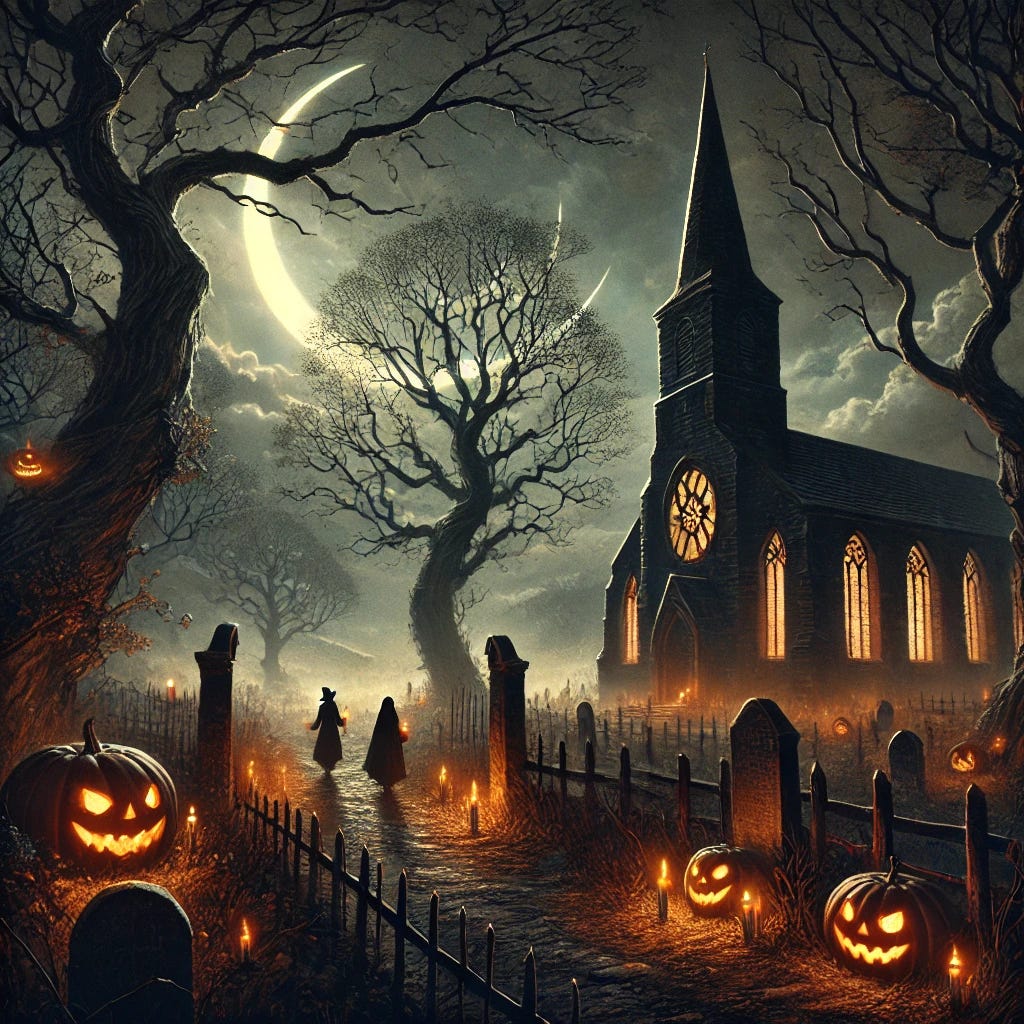A Devilish Memory
Picture this: Little me, dressed up as "The Devil" for Halloween, complete with a pitchfork and horns. I'm sure I was quite the sight! But this memory got me thinking - what's Halloween really about? Is it just about dressing up as spooky characters, or is there more to it?
I recently overheard someone say, "Halloween is evil, and Christians should steer clear of it." That got me wondering - is there any truth to that? To get to the bottom of this, we need to dig into the history of All Hallows' Eve and All Saints' Day. Trust me, it's more interesting than you might think!
Halloween's Christian Roots: Not What You Might Expect
Believe it or not, Halloween has deep Christian roots. Let's explore how Halloween, All Hallows' Eve, and All Saints' Day are all connected. It's quite a story!
All Hallows' Eve: The Night Before the Big Day
Here's a fun fact: "Halloween" is actually short for "All Hallows' Eve." It's the evening before All Saints' Day, a Christian holy day. "Hallow" is just an old-fashioned word for "holy" or "saint."
Back in the day, Christians would use All Hallows' Eve to prepare for the feast day coming up. They'd fast and pray, getting ready to celebrate All Saints' Day. Quite different from our modern Halloween parties, right?
All Saints' Day: Remembering the Faithful
Now, All Saints' Day is a big deal in the Christian calendar. It's celebrated on November 1st, and it's all about honoring the saints - both the famous ones and the everyday heroes of faith. It's a time to remember and celebrate those who've gone before us in faith.
This tradition goes way back to the early Church. It became official in the 8th century, thanks to Pope Gregory III. The day reminds us of the "communion of saints" - the idea that there's a spiritual connection between those in heaven and us here on Earth.
When Traditions Collide
As Christianity spread, it often mixed with local customs. In the case of Halloween, All Hallows' Eve happened to fall on the same day as Samhain, a Celtic festival marking the end of harvest and the start of winter.
Over time, these traditions blended together, creating the Halloween we know today. While many of us focus on the fun, secular parts of Halloween now, its Christian roots are still an important part of its history.
Finding Christian Meaning in Modern Halloween
For many Christians today, Halloween can be an opportunity to reflect on mortality, remember loved ones who have passed, and celebrate Christ's victory over death. Some churches even host "trunk-or-treat" events or fall festivals as alternatives, focusing on community and fun rather than the spookier stuff.
So, Is Halloween Actually Evil?
Here's my take: Halloween itself isn't evil. Can it involve not-so-great stuff? Sure, but that's true of anything involving us humans. We all have the capacity to choose between good and evil.
There's a quote I love from Aleksandr Solzhenitsyn: "The line separating good and evil passes not through states, nor between classes, nor between political parties either—but right through every human heart." It reminds us that we all have the potential for good and evil, and our choices determine which path we take.
Wrapping It Up
Understanding Halloween's Christian origins can really add some depth to how we celebrate it. Whether you're into Halloween, All Saints' Day, or both, remember that these observances have a rich history rooted in faith, community, and remembrance.
As we head into this season, why not take a moment to think about the saints who've gone before us and the legacy of faith they've left behind? After all, that's what All Hallows' Eve and All Saints' Day are really all about.
Note - At Sandy Hook UMC, we celebrate All Saints’ Day on the first Sunday of November each year. We also host a Trunk or Treat on Halloween evening.








